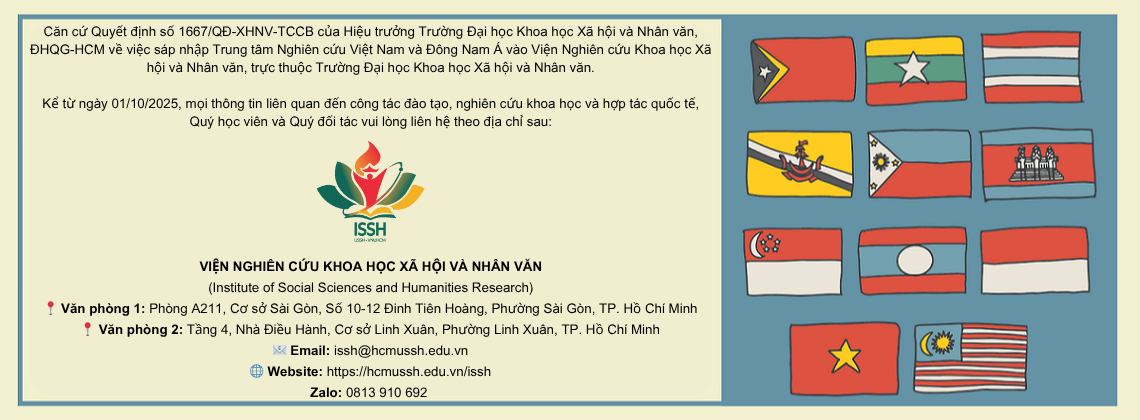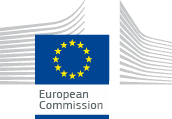WORK BENEFICIAL TO EDUCATION IS A GIFT
, 04/05/2017 16:05Interview with Doanh Nhan Cuoi Tuan Newspaper. Here is the link to the original article in Vietnamese:
http://www.doanhnhancuoituan.com.vn/giao-duc/cong-viec-co-loi-cho-giao-duc-la-mot-mon-qua.html
Late 2016, the Center for Vietnamese and Southeast Asian Studies (CVSEAS) became a bridge that provides free consultancy for those interested in studying abroad in the University of Hawaii. This is regarded as a remarkable activity, for CVSEAS has long been under the “shadow” of the HCM City University of Social Sciences and Humanities and widely known as a research center which conducts and publishes scientific studies on Vietnam and Southeast Asian issues. The following brief interview with Dr. Tran Dinh Lam, Director of CVSEAS, will give you a better understanding of this center’s multiple roles.
.jpg)
Dr. Tran Dinh Lam, Director of Center for Vietnamese and Southeast Asian Studies
How did you know about the study abroad program in Hawaii and introduce it to Vietnamese students?
Upon the occasion I was given a chance by the HCM City University of Social Sciences and Humanities to carry out research in Hawaii for a year, I realized that opportunities for Vietnamese students to study abroad in Hawaii were really opened up, for the University of Hawaii is the only higher education institution in the US having the mission to facilitate the development of Southeast Asian countries; therefore, students from Vietnam and other nations in the region will get more advantages and school admission is also rather easy. Also during that trip, I was lucky to meet up with Prof. Bui Tung, who holds a doctoral degree in Managerial Economics, is the Director of the Pacific Research Center for Information System Management and also the Director of the Asia-Pacific Economic Cooperation Study Center (APEC-Study Center) of the University of Hawaii. Thanks to Prof. Bui Tung’s connection, the school fee for Vietnamese students at the University of Hawaii has reduced by over half, from US$32,000 to US$15,000 per year. That offers students a good opportunity to realize their dream of studying abroad, so we think we need to disseminate information of this program to the public.
This is a program useful for students of various majors, not only those majoring in social sciences. So why didn’t CVSEAS spread the news nationwide but only held a small introductory workshop at the HCMC University of Social Sciences and Humanities?
We will provide consultancy and clear instructions for all students who would like to study in Hawaii. As for the program’s publicity, we mainly rely on “word of mouth” and our Center’s website, for we don’t have enough budgets to organize many study abroad workshops or have the news posted on different types of media.
The operation of CVSEAS does not depend on the state’s budget. We are working as an separate organization which has to generate capital by ourselves and pays tax as an independent enterprise. The Center’s Deputy Director and I have been voluntarily working without receiving salaries. CVSEAS’ staff members are also happy although they earn a low monthly wage. It sounds like an idealized viewpoint, but for us, doing work that benefits the society every day is really a gift.
So from what sources does the Center generate capital for its operation?
They are from foreign projects. When external organizations want to find partners in Vietnam through CVSEAS, they will have to pay fees for our role as “a bridge”. In addition, we open courses in foreign languages such as Khmer, Thai, Laotian, and Indonesian in upcoming classes for those in need. However, our main function is connecting both domestic and foreign research centers and institutes. We are planning to have more cooperation with local coordinators and other organizations in order to expand short-term and long-term training services, dissimilate knowledge of Vietnamese and Southeast Asian issues, supply scientific services, and hold seminars and conferences, as well as conducting scientific studies.
Could you please clarify your Center’s role in connecting internal and international research centers and institutes?
We search and call for foreign projects through individual and organizational relationships. I myself had 10 years of experience in work related to international cooperation, so my personal relationships are quite helpful. Our Center will provide opportunities for Vietnamese teachers, students and postgraduates to have cooperation or take part in foreign projects so they can exchange with and learn from experienced experts. As a result, the quality and capacity of domestic teachers and students will be somehow enhanced.
A typical example of such projects is “Enhancing Scientific Research Capacity in Climate Change”, which is a 3-year project under the coordination of the University of Alicante (Spain) with the support funded by the Erasmus+ Program of the European Union. This project is aimed at training and improving staff capacity as well as research methods to conduct studies on climate change, contributing to increasing the efficiency and practical values for study activities that cope with the phenomenon. Another project we are participating in is the one that involves three universities in Europe and six universities in Vietnam with the aim of promoting and advancing the approaches of scientific management at Vietnamese higher education institutions as well as strengthening research capacity of the scientific community in Vietnam (ENHANCE), which also lasts three years and is funded by the Committee of the European Union. The project creates an opportunity for Thai Nguyen University, Can Tho University, University of Social Sciences and Humanities – VNU Hanoi, Hue University of Agriculture and Forestry, An Giang University, and University of Social Sciences and Humanities – VNU Ho Chi Minh City to establish a stable environment for scientific research, contributing to the country’s intellectual growth.

CVSEAS works with representatives of ENHANCE project.
We have recently completed a project on “Intellectual Property Rights in Developing Countries” funded by the Waseda University Grant for Special Research Projects (Japan). Academic papers by professors and experts on intellectual property rights have been published by the Vietnam National University – HCMC Publishing House, and they can help experts and policy-makers implement appropriate policies to benefit both developed and developing countries.
Besides, we act the role as a bridge for scholars of the Fulbright University who come to Vietnam to carry out studies on adverse effects of Agent Orange or the abuse of chemicals and pesticides in agriculture. For teachers and students taking part in such programs, they not only earn extra incomes but also have a chance to develop their professional expertise.
Generally speaking, we have been involved with a large number of projects, and each staff member at CVSEAS has to deal with various tasks. However, we all just do our best to complete them without expecting to be awarded with any certificates or titles. The most precious present for us is the trust and long-lasting cooperation with domestic and foreign partners.
Thank you.
Tuong Lam














